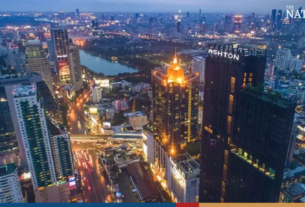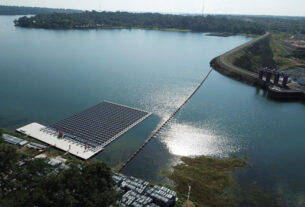 Workers in Thailand need real safety
Workers in Thailand need real safety
Labor Day on Sunday should have ended on a high note as the government was reportedly considering a demand by labour groups to raise daily wages.
Yet it was overshadowed by a deadly accident at a construction site in Bangkok’s Bang Sue district on the same day when a Myanmar construction labourer was killed and five other workers injured when their scaffolding collapsed.
The day before another worker was killed in a forklift accident at a cargo distribution centre in Muang district in Samut Prakan province.
Both incidents were reminders that serious workplace accidents in Thailand are not rare.
The two fatal accidents come as May is meant to be the month that celebrates the labour movement and the welfare of workers.
As part of that, May 10 is Thailand Work Place Safety day. The authorities selected this date as a way to pay tribute to 188 factory workers killed in the country’s deadliest fire accident at Kader Toy Factory in Nakhon Pathom province in 1993.
Since then, the government has improved or implemented laws such as the upgraded Factory Act 1992 and the Building Control Act 1979 plus the Occupational Safety, Health and Environment Act 2011, which required business owners to invest more in safety measures in workplaces.
However, there are workplaces in Thailand — such as on fishery boats, some factories or construction sites — that are not safe places for workers. This shows the aforementioned examples from the weekend are part of a tragic pattern and not uncommon occurrences.
In 2019, the Social Security Office (SSO) paid out compensation for about 10,000 workplace accident cases mainly in incidents that occurred in factories, construction sites and commercial buildings.
It is not surprising that the death toll from accidents at construction sites is higher than other sectors.
While the nature of construction work is risky, SSO and police investigations found violations of laws and a lack of a safety culture were to blame.
Police inspections have repeatedly found many contractors violated the Building Control Act of 1979 by not hiring safety engineers to supervise construction.
In accidents at high-rise construction sites, police reportedly found contractors had used substandard construction cranes that had been outsourced.
There have also been reports that some of the outsourced cranes used ageing equipment decommissioned from Europe and Japan.
Meanwhile, the Thai Labour Solidarity Committee (TLSC) has been asking the government to introduce more measures to improve the country’s unimpressive safety record.
A decade ago, the TLSC submitted 10 demands — among them the forming of a special national body to oversee safety in workplaces, establishing a Work Safety Fund and using harsher penalties such as suspending construction work permits or blacklisting contractors with serious work safety records.
Unfortunately, the TLSC’s demands have not been applied.
In the month of May, Prime Minister Prayut Chan-o-cha, who recently said that the government values labourers, can do more than pay lip service by making workplace safety a priority in the country’s labour policy.
While it is imperative for government to raise welfare and wages, it is the duty of the state to make sure workplaces are safe.
Source: https://www.bangkokpost.com/opinion/opinion/2303814/workers-need-real-safety


